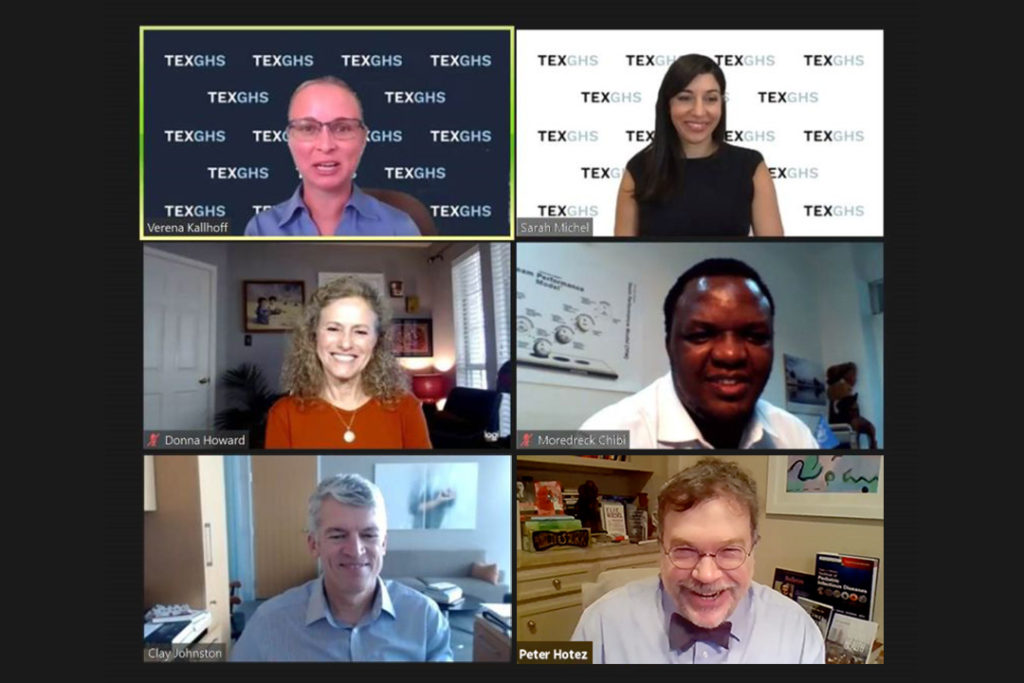The Texas Global Health Security Innovation Consortium (TEXGHS) hosted a virtual launch on Tuesday, Oct. 6, featuring a variety of public health experts from across the world to discuss the current state of COVID-19 in Texas and how TEXGHS is working to support innovation in the fight against this pandemic and future ones.
“The Texas Global Health Security Consortium is a great example of how collaboration between the university, public and private sectors are positioning Texas for the future. This type of collaboration is critically important to spur not only the recovery of the Texas economy but to protect our state and our nation from future pandemics.”
Adriana CruzExecutive Director of Economic Development and Tourism for Gov. Greg Abbott's office
Keynote speaker Dr. Peter Hotez, the dean of the National School of Tropical Medicine and co-director of the Texas Children’s Hospital Center for Vaccine Development, discussed how he has seen a reversal in public health aims over the last five years related to the combination of different forces including political instability, climate change, urbanization and rising anti-science sentiments.
“We are in this epic struggle of science versus anti-science, of vaccines and all the excitement that vaccines can bring in terms of protecting public health, but also the rise of 21st century forces… and this very aggressive anti-science movement,” Hotez said.
A partnership between the federal government and the private sector called Operation Warp Speed is currently working to develop a safe and effective COVID-19 vaccine by January 2021, using a variety of approaches and technologies. Hotez said that because the project lacks sufficient messaging, however, Americans are losing confidence in the nation’s vaccine system, further enabling the anti-science movement which is a large threat to global health.
In this political environment, innovations are really going to make the difference, Clay Johnston, the dean of the Dell Medical School at the University of Texas at Austin, said.
“We can’t expect the changes to happen necessarily at a political level, but if we have those options – the availability of different options, whether it’s better testing or a vaccine that comes sooner – and those are in a tool kit that can be used by smaller groups, … that can open things up,” Johnston said.
TEXGHS is assembling a health security innovation ecosystem across Texas to support innovators that are developing solutions to address COVID-19 but are also working to build resiliency into these communities, Dr. Lisa McDonald, the director of health care at Austin Technology Incubator, said. The consortium is currently working on several projects such as mass vaccination systems, diagnostics, therapeutic technologies and prevention technologies, and each project emphasizes accessibility and equitability for everyone.
“We want to make sure that we understand where the needs and the perceptions in the community are and that we open a bilateral conversation across our communities so we can be sure that innovations that are supported by TEXGHS affect everyone in the way that they expect to be affected and benefitted from those innovations,” McDonald said.
– Cara Daeschner, TEXGHS


